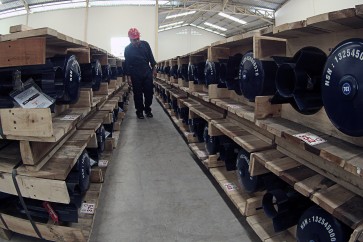Confronting Indonesia's productivity challenge in manufacturing industry
Most of ASEAN manufacturers including Indonesia have labor costs lower than China’s, but they have lower productivity rates as well.
Change Size
 Local products -- A worker inspects bombs produced by weapon manufacturer PT Sari Bahari in Malang regency, East Java, on Jan.5. (JP/Wahyoe Boediwardhana)
Local products -- A worker inspects bombs produced by weapon manufacturer PT Sari Bahari in Malang regency, East Java, on Jan.5. (JP/Wahyoe Boediwardhana)
I
ndonesia, along with most other Southeast Asian countries, has an opportunity to capture a bigger share of global manufacturing activity. Rising wages in China is giving the 10 countries making up the ASEAN an opportunity to replace China as the “factory of the world.” Yet, taking advantage of this opportunity is not going to be simple.
The major challenge, in a word, is productivity. Most of ASEAN manufacturers including Indonesia have labor costs lower than China’s, but they have lower productivity rates as well.
If Indonesia wants to become attractive to manufacturing multinationals and turn the cost advantage it still enjoys into the basis for a robust manufacturing economy, the country cannot compete on low wages alone. It will have to dramatically improve its industrial productivity.
In what can be seen as both a serious challenge and an unusually timely opportunity, the need for Indonesian industry to step up its productivity coincides with a profound, global transformation — the greatest such change in more than 100 years — in how industrial firms produce and deliver the goods that fuel economies. This transformation is widely known as Industry 4.0.
We define Industry 4.0 as the next phase in the digitization of the manufacturing sector. It offers the possibility of enormous increases in productivity while satisfying demands from today’s customers for customized products, faster delivery and high levels of service.
The Industry 4.0 “toolkit” — which includes such elements as advanced analytics, robotics, automation, the “internet of things” (IOT) and connectivity — can be deployed across the value chain to greatly enhance performance and sustainability. For example: Product development can now draw upon tools such as collaborative design, 3D modeling, VR-based design and design for manufacturability.
Efficiency in production can be enhanced not just through automating the production process itself but also by root-cause detection of quality failures, predictive maintenance, and use of augmented reality for maintenance. Industry 4.0 tools can be used to dramatically improve supply chain transparency and reduce inventories.

















